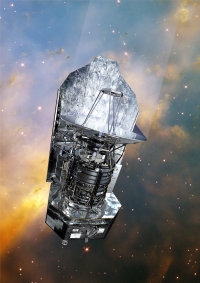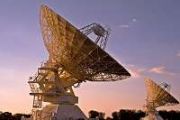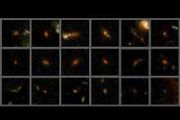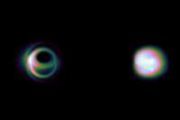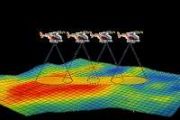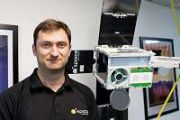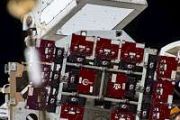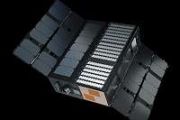A space telescope observing in the far-infrared.
The Herschel Space Observatory is a European Space Agency space observatory sensitive to the far infrared and submillimetre wavebands. It is the largest infrared space telescope ever launched, carrying a single mirror of 3.5 metres (11.5 ft) in diameter.
The observatory was carried into orbit in May 2009, reaching the second Lagrangian point (L2) of the Earth-Sun system, 1,500,000 kilometres (930,000 mi) from the Earth, about two months later. Herschel is named after Sir William Herschel, the discoverer of the infrared spectrum and planet Uranus.
The Herschel Observatory is capable of seeing the coldest and dustiest objects in space; for example, cool cocoons where stars form and dusty galaxies just starting to bulk up with new stars. The observatory will sift through star-forming clouds—the "slow cookers" of star ingredients—to trace the path by which potentially life-forming molecules, such as water, form. The United States through NASA is participating in the ESA-built and -operated observatory. It is the fourth 'cornerstone' mission in the ESA science program, along with Rosetta, Planck, and the Gaia mission.

